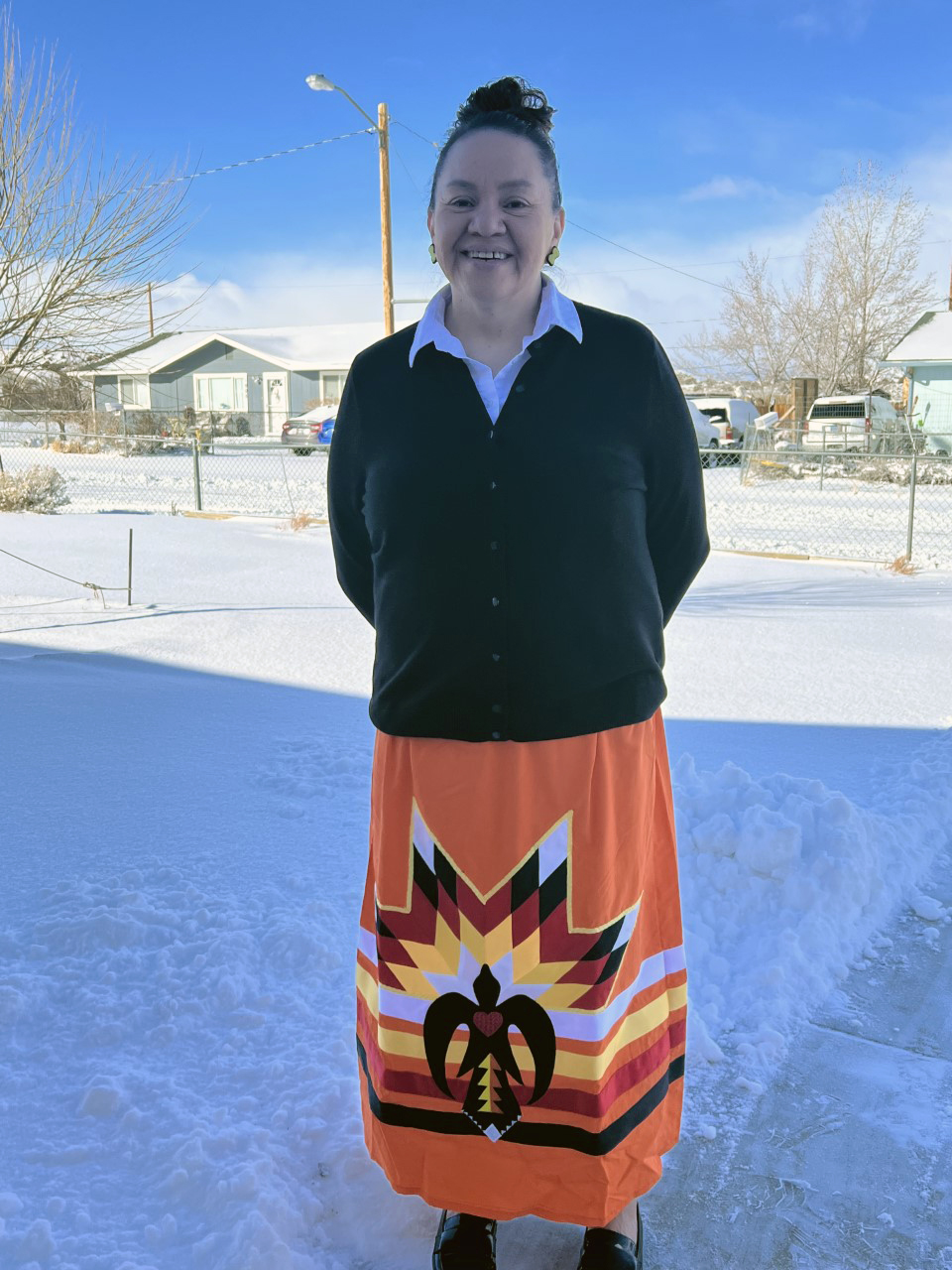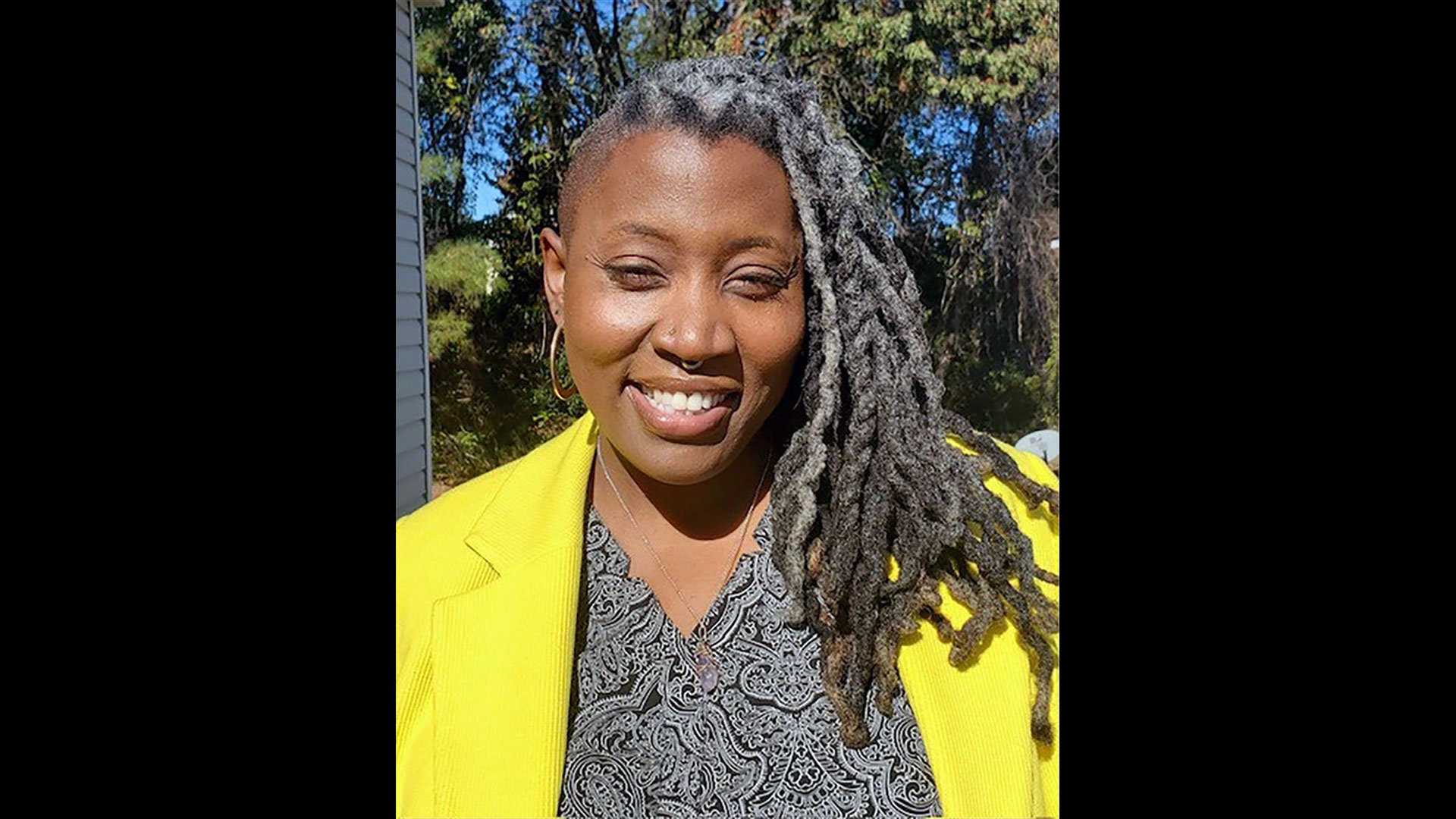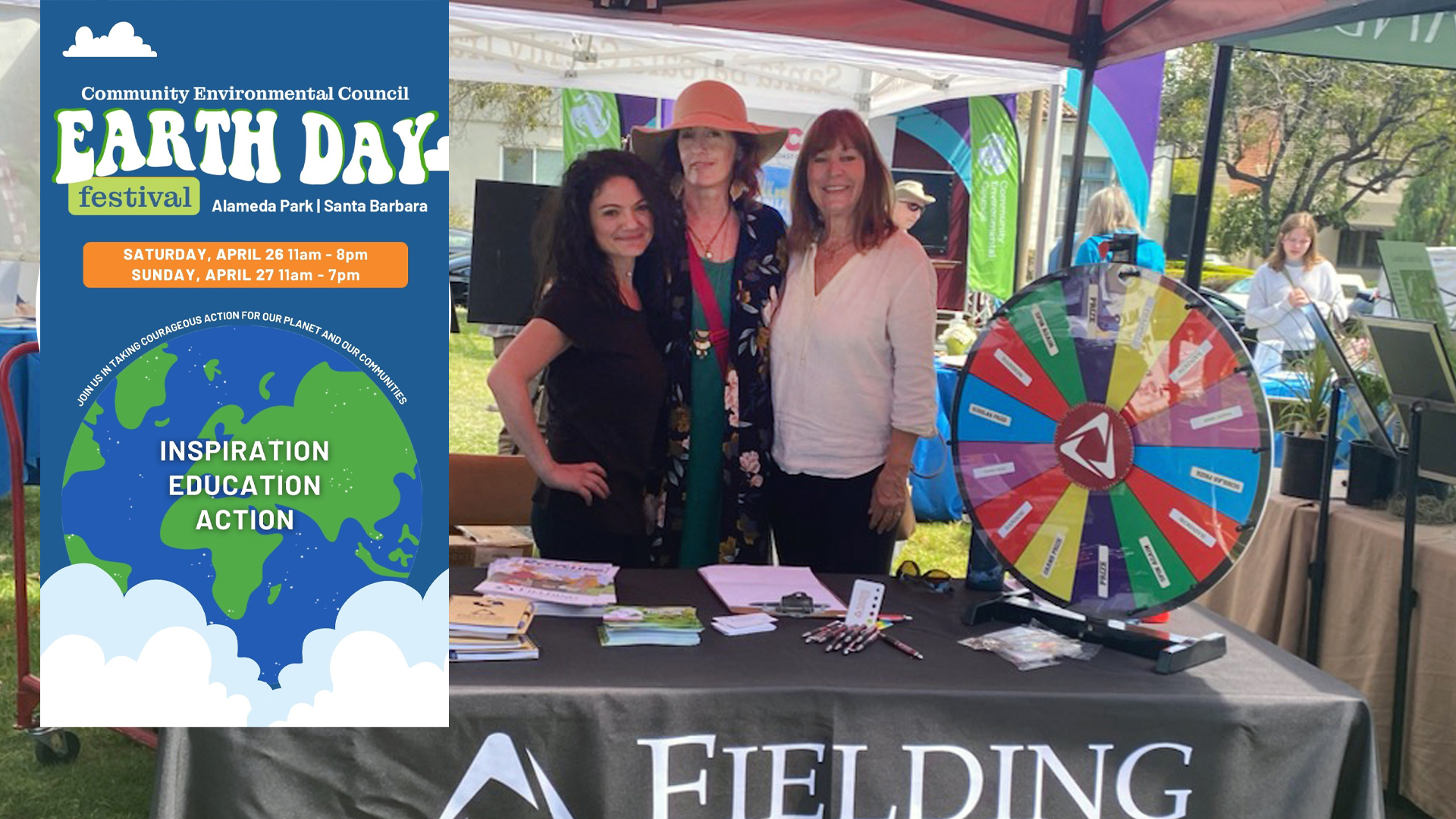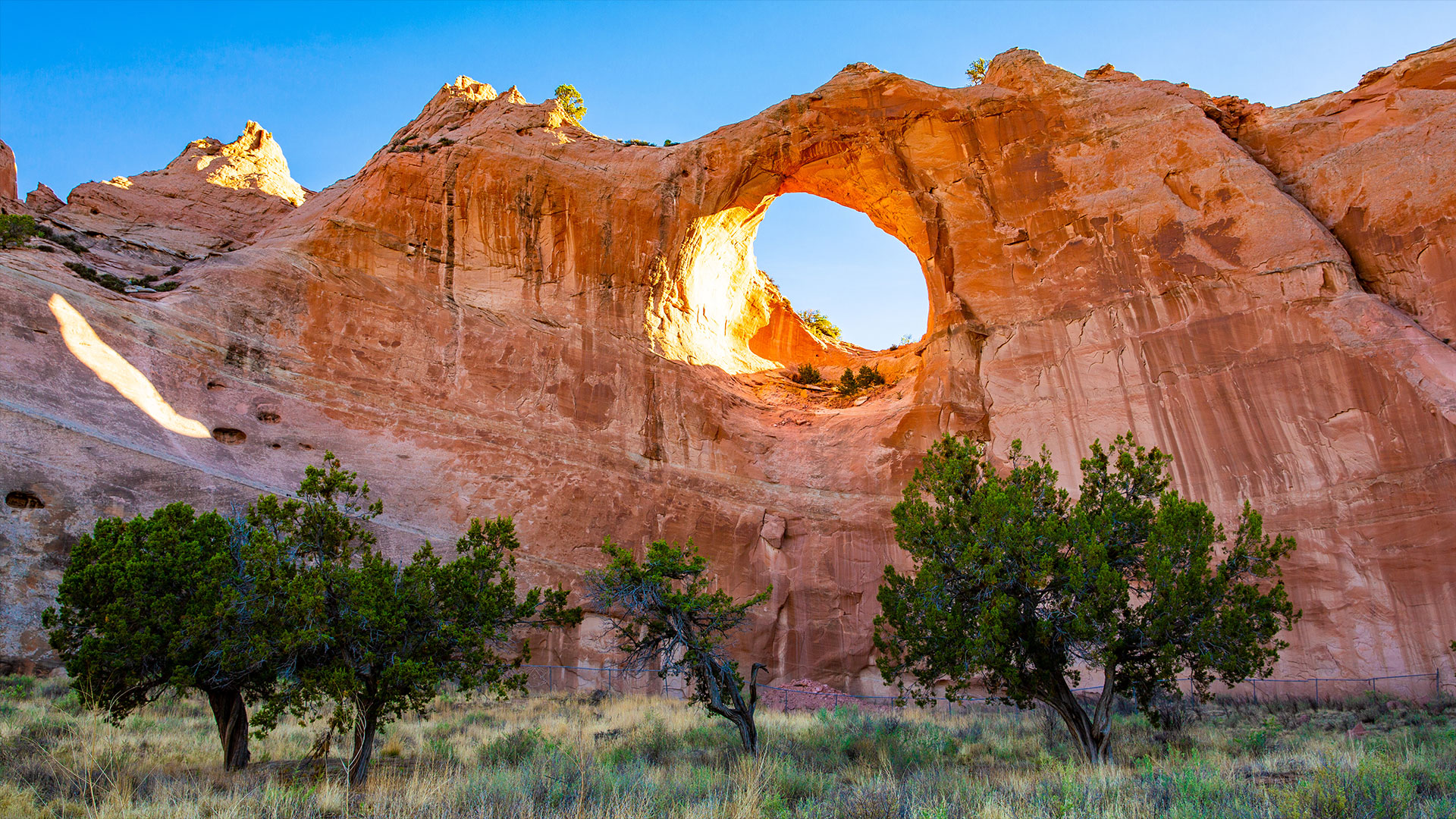National Missing and Murdered Indigenous Women (MMIW) Awareness Day is May 5th.
The National Indigenous Women’s Resource Center (NIWRC) declares the first week in May as a National Week of Action for Missing and Murdered Indigenous Women, and the entire month of May as a time to recognize MMIW in North America. MMIW is also known as MMIWG2S for Missing and Murdered Indigenous Women, Girls, and Two Spirit. Information on how to get involved is available at www.niwrc.org/mmiwnatlweek23.
- 4 out of 5 (80%) of our Native women experienced some form of violence in their lifetime. (1)
- Native women face murder rates more than 10x times the national average. (2)
- Homicide is the third leading cause of death among Native girls & women aged 10 to 24, and the fifth leading cause of death for Native women aged 25 to 34. (3)
On the first day of MMIW recognition month, Fielding News sat down with Fielding graduate student, Amanda Abbie-Hall, to discuss the significance of MMIW and her specific research working within the Native American communities. Amanda is a first-year clinical psychology student at Fielding and a recent graduate of Fielding’s Postbaccalaureate Certificate in Clinical Psychology. She is also a first-generation college student who currently works with the tribal enterprise department for the Paiute tribe in Reno, Nevada. She is an enrolled member of the Hualapai Tribe from Peach Springs, Arizona.
[Editor’s note: What is the purpose of tribal enrollment? Tribal enrollment requirements preserve the unique character and traditions of each tribe. The tribes establish membership criteria based on shared customs, traditions, language and tribal blood.]
Q. Thank you for your time today, Amanda. Let’s start from the beginning. Where were you born and raised?

Amanda Abbie-Hall, doctoral student in Clinical Psychology
Amanda: I was born in Arizona, and I was raised in Reno, Nevada, on my dad’s reservation. My mom is from Arizona, from a reservation in Arizona. I’m enrolled with the Hualapai Tribe from Peach Springs, Arizona, which means “people of the tall pines.” When my parents got married we moved and lived here on my dad’s reservation, the Paiute tribe in Reno, Nevada, which is where I currently live and work. Here’s a fun fact: I do not have any other work experience as I have been employed with the Paiute tribe for over 30 years!
Q. That is impressive indeed. Before we get into your Fielding journey, please share with us what this month of recognition for missing and murdered Indigenous women means to you.
Amanda: MMIW has really become a part of my everyday existence. As a Native American woman, I am very aware of how we often go missing, and the sad part is that no one really looks for us. There is a difference when someone of another race goes missing. But when Native women go missing, people just don’t rally, you know, to look for Native women, and so it’s really an injustice in our community. And it hits me because it touches on the vulnerable people within our community, the children and the women. And so if we don’t get the word out, then it just continues to go on being unnoticed.
Q. And so the MMIW movement is important because there is a real lack of public awareness?
Amanda: Absolutely. And I believe that Indigenous women are 10 times more likely to go missing than women of other races. And sadly, there’s just not a lot of information about it. This is why ground-level grassroots organizations are so important because change starts with awareness. Organizations have to get the information out there. Otherwise it just remains dormant, and no one knows. Nothing changes.
Q. Getting the word out about worthy social justice causes is the keystone for Fielding. Is that one of the reasons why you came to Fielding?
Amanda: Yes, that’s one of the reasons. But I loved Fielding’s mission statement and the organization’s commitment to diversity. As I’ve gone through undergraduate and other educational opportunities, I was always like the only Native woman. And so, when I started with Fielding in the postbac, I noticed that there were people of color, you know, and so I was able to identify.
Q. Can you expand on that?
Amanda: Just being in Fielding for a couple of years, I’ve already experienced and seen so many opportunities that the university provides for people of color. And the organization is always celebrating different cultures and truly embraces diversity. And so that’s what really brought me to Fielding, and why I’m pursuing my doctorate here.
Q: Terrific! Let’s move on to what you’re currently doing at Fielding. Although you are in your first year as a doctoral student in clinical psychology, it appears you already know your research area of interest. Is that correct?
Amanda: Yes, that’s right.
Q. Prior to this interview, you wrote to us that you were interested in intergenerational trauma specifically with the Native American communities. What is intergenerational trauma?
Amanda: Intergenerational trauma is the trauma that’s handed down from one generation to another. And the literature shows that colonization is inferred to have some interaction with how Native people survive in the world. And so the statistics show that Native people have…well, we’re at the top of the list for drug and alcohol abuse. But the list goes on from substance abuse, suicide, lower education.
And so all of these things cumulatively work together. These are factors of intergenerational trauma. Something like poverty, for example. Just the placement of certain tribes in rural areas…that strategic placement of putting people way out in the middle of nowhere greatly impacts how people are able to live. Something as basic as access to healthy foods. If you have to travel a hundred miles just to get some vegetables. And you don’t have a vehicle to travel that far. The system breaks down. And so all of these types of things interfere with the way people, Native people, live. There are just a lot of problems and disparities in the Native communities.
Q. Will your research be a holistic view or are you digging deeper into one or a subset of issues within the Native communities?
Amanda: Well, I do have a specific area, but because it’s in the lab we’re not able to talk about it because it’s ongoing.
But yeah, I finally narrowed down my specific area, because every time I read something I would think to myself, “Oh, this is really interesting!’ and I would go that way until the next deviation. So finally I think about maybe a month or so ago I narrowed it down. I have it.
Q. That is very common for Fielding students to be inspired by many different avenues in their area of interest. And I understand you cannot talk about ongoing research so let’s fast-forward to the finish. What do you hope comes from your work?
Amanda: Well, I hope that I’m able to understand Native people in a different way. Allow me to explain. Because I live on a reservation, I sometimes feel like I have biases, you know, because I’m looking at it from the inside out.
There’s also another area that I feel like I need to expand on. I live on a reservation but I also live in a city. And so there are differences between Native Americans who live on a reservation which are way out, and Native Americans that live in the city. And so I have the best of both worlds because I live in a city but I also travel back and forth to my reservation in Arizona, which is remote.
And so so I’m trying to work on that with myself. And then I’m hoping that all this information and my dissertation work on intergenerational trauma, helps me be more effective in working with Native people. Because when I graduate that is the specific population that I will be working with. Hopefully, on a reservation working in Indian Health Services. So I’m hoping to get all that experience and education now, so I can contribute day one when I start working.
Q. So you’re motivated by giving back — also a very Fielding quality. Are you looking to go back to your specific community or elsewhere in North America?
Amanda: Well, luckily I have some options because I am an Indian Health Service scholarship recipient. What the scholarship includes is job placement upon graduation. And so, the scholarship pays for me to go to school, and then in return, when I graduate I am placed somewhere in the country in the Indian Health Service unit. I believe I have the opportunity to go wherever I want. But I would like to go back to my tribe and reservation to work there because they have a facility on the reservation.
Q. Very exciting. How has the experience been so far in the clinical psychology program?
Amanda: Well, you know, I’m really glad that I took the postbac program because I didn’t really have a strong grasp of scholarly writing, research, and statistics. The postbac gave me that foundation and a lot more.
And then being in the clinical program, it’s really intense. There’s a lot of work that you have to do. But I think if you have a mindset to buckle down, you can be successful. You know my favorite marathon runner, Eliud Kipchoge, always talks about having discipline, you know he’s like the best Marathon runner in the world right now. I think he ran a Marathon in under two hours. And so people are always asking him what his secret is? And so he always says you have to take “vitamin N.” When I first heard that I asked, “what’s vitamin N?”
The answer is that’s learning how to say “no” to some things. And then being disciplined also requires prioritizing and not complaining. And so, when I feel like I’m overwhelmed, I think of those three elements: Vitamin N, prioritize, and don’t complain.
Because school can be challenging. It’s difficult going to school full-time, especially when you’re working and have a family. In my mind, I have to be able to buckle down and sometimes say no when I want to hang out with the family. But I have a paper, or like 100 chapters to read. I have to buckle down, stay home and read, read, read! But I think it’s worth it, because in the end I will have achieved a personal goal and will be well situated to help people in my community. So it’s okay. Sacrifice. It’s okay.
Q. Well, that seems like sound advice for many things in life. How about those who may have given you advice? Are there any Fielding professors that you’ve found particularly helpful?
Amanda: Oh, man, there are so many. Fielding is so awesome because even though it’s a distributed way of learning, you feel very connected. I’m not one who always likes to be on Zoom…but it’s the way of the world now. Things have changed but Fielding was ahead of the curve so they do it well. And I would have to say, Dr. Jacquin has been a very positive person in my life and a very good resource for me. I’ve traveled through my journey so far with Dr. Jacquin starting in the postbac program. But there are many other professors like Dr. Jay Dill. He was my statistics instructor, and I struggled with statistics like nobody’s business, but he met with me frequently to ensure my success in the course. Also, Dr. Williams was in the postbac program. She is just one of those people that you feel comfortable speaking with and are able to open up to. We had a multicultural class with her which was very interesting, and she was very open to hearing about everyone’s experiences. And then there are Dr. Page, Dr. Lassen…I could keep going! They’re just a lot of professors that I feel like I’ve connected with, whereas I didn’t have that before, you know. So I’m very fortunate to have these people in my life.
Source:
-
Rosay, André B., Violence Against American Indian and Alaska Native Women and Men: 2010 Findings from the National Intimate Partner and Sexual Violence Survey. Washington, D.C.: U.S. Department of Justice, National Institute of Justice, 2016, NCJ 249736.
-
Bachman, R., Zaykowski, H., Kallymer, R., Poteyeva, M., & Lanier, C. (2008). Violence Against American Indian and Alaska Native Women and the Criminal Justice Response: What is Known. Washington, DC: US Department of Justice.
-
Centers for Disease Control and Prevention. Leading Causes of Death in Females by Age Group, American Indian/Alaska Native. 2015. Retrieved from: https://www.cdc.gov/women/lcod/2015/native/index.htm.
Join Over 7,500 Fielding Alumni Located Around The World!
Change the world. Start with yours.™






Get Social